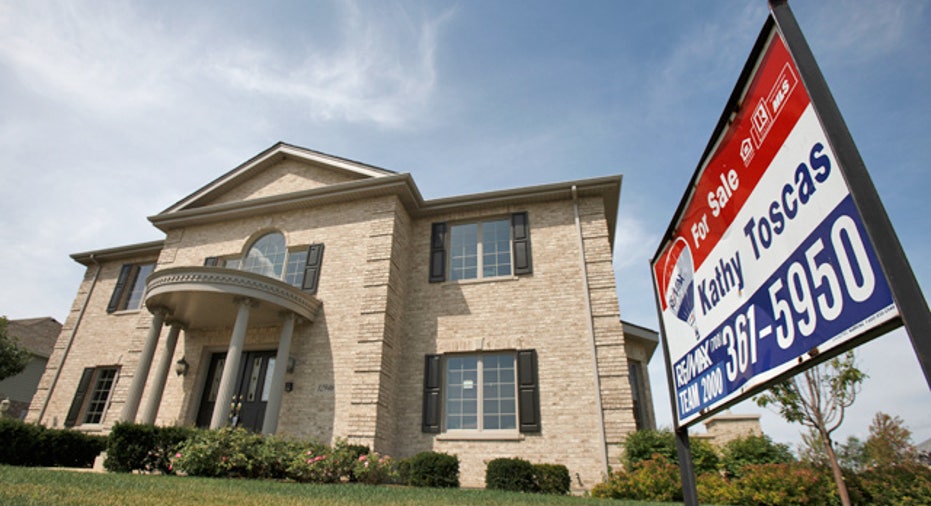Dump Underwater Home? Credit Will Sink

Dear Debt Adviser,
I bought a condo in 2007 that is now underwater. I have a 5/1 adjustable-rate mortgage. That is, it has a fixed rate for five years and will be adjusted annually thereafter. The unit is seriously underwater. I purchased it for $359,000, and it is currently appraising at $245,000. I owe $319,000 on the mortgage. I can still make my mortgage payments just fine. But I want to dump this property so badly. What can I do? What are the options for people like me, who can make their payments but no longer want to live in the property they own?
-Robin
Dear Robin,
You are in good, or perhaps more accurately, not-so-good company. At the end of the first quarter of this year, 23% of U.S. homeowners with mortgages were underwater, according to a study by the research firm CoreLogic. (That is, the homeowners owe more on the mortgage loan than the current value of the home). That is a staggering 10.9 million homes. Now that we know you are far from alone, let's discuss your situation.
Many, like you, view their homes as an investment. You didn't say there is anything wrong with your home, nor do you need to leave the area for a job opportunity. You just don't like continuing to pay into an investment that may possibly be a long-term loser. This is a legitimate concern. Among other options, you could rent the place out, sell it and absorb the loss, live in it and stop worrying about the future or, as you so tenderly put it, dump it. Since you brought it up, let's look at the pros and cons of dumping it.
In normal times, I would counsel you to wait until prices turn up again before taking drastic action. But these are not normal times. A housing recovery may be long in coming. Furthermore, you may not be solely to blame for making a bad investment decision on this condo. There is a case to be made that the real estate person who sold you the condo, and the bank that financed it, played a role in this mess. Against that backdrop, an option many homeowners are choosing is a strategic default.
Strategic default is when you make the choice to stop making mortgage payments and your condo is foreclosed on by the mortgage holder. You have additional options, with differing consequences, for getting rid of your property. You can opt for a deed in lieu of foreclosure, for instance. You might attempt a short sale, where the lender agrees to let you sell the home for less than the remaining mortgage. Or you could mail your keys to your lender and move out. I have outlined some positives and negatives below regarding the choices you have.
Positives
If you live in a state with nonrecourse mortgages, you may not be responsible for the deficiency. According to the Internal Revenue Service, "A nonrecourse loan is a loan for which the lender's only remedy in case of default is to repossess the property being financed or used as collateral. That is, the lender cannot pursue you personally in case of default." The rules and protections vary by state. So you need to determine precisely what nonrecourse protections you might be eligible for.
There can be tax advantages. Typically, forgiven debt is considered income by the IRS. However, if disposing of your home results in the lender forgiving part of your mortgage, the Mortgage Forgiveness Debt Relief Act provides that you will not have to pay income taxes on any qualifying mortgage amount, up to $1 million. This law's protection is available through 2012. However, the issue is a bit more complicated if you borrowed against your home and used the money for purposes other than home improvements or mortgage debt. That amount may not be sheltered from taxes.
Negatives
You could be sued by the lender for the balance of your mortgage loan that is not satisfied with the sale of your home. In your case, that's $74,000 plus fees and unpaid accrued interest. You will suffer a big hit to your credit, which won't fully recover for seven years. For those with a FICO credit score of 720, for instance, the credit score would reasonably be expected to drop to a range of between 570 and 590.
Poor credit due to a mortgage default means you will pay more for credit, if you can get it at all. Furthermore, you may have trouble renting a place, getting a new job or promotion and obtaining reasonably priced insurance. You will be also shut out of Fannie Mae-backed mortgage loans for seven years.
Before considering a strategic default on your home, seek legal advice to determine all the consequences for the action in your state. And while you're at it, have your lawyer check over your loan documents to make sure they were properly drawn up and executed. Get more news, money-saving tips and expert advice by signing up for a free Bankrate newsletter.
Ask the adviser
To ask a question of the Debt Adviser, go to the "Ask the Experts" page and select "Debt" as the topic. Read more Debt Adviser columns and more stories about debt management. Bankrate's content, including the guidance of its advice-and-expert columns and this website, is intended only to assist you with financial decisions. The content is broad in scope and does not consider your personal financial situation. Bankrate recommends that you seek the advice of advisers who are fully aware of your individual circumstances before making any final decisions or implementing any financial strategy. Please remember that your use of this website is governed by Bankrate's Terms of Use.



















